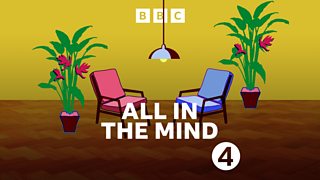Why Do We Procrastinate?
In the fourth episode of Radio 4's Why Do We Do That?, Ella Al-Shamahi looks at why we procrastinate. Why do we put things off? Is there anything beneficial about procrastination? Is it a battleground between emotion and reason, and can people be trained away from it? Keeping Ella focused on the task at hand are stand-up comedian and diehard procrastinator Eshaan Akbar and psychologist Caroline Schlüter.
Here are six moments from the episode that might give pause for thought…

1. Procrastination has a long history
Procrastination is almost as old as time. Previous figures in history who have pronounced on the condition include Marcus Aurelius, a Roman emperor from 161 to 180 and a philosopher from a Stoic school that emphasised positive thinking. He said: “You could be good today, but instead you choose tomorrow.”
Chronic procrastination – a condition so severe it interferes with everyday living – is at 20% among the population.
2. Chronic procrastination is common among adults
Today’s lifestyles seem to offer a perfect storm for procrastination, with so many distractions available, from Insta to Wordle.
A study carried out in the US revealed that the level of chronic procrastination – a condition so severe it interferes with everyday living – is at 20% among the population. Other studies show the impact of this, suggesting that procrastination raises stress levels and impacts on financial and career success.
3. Impulsiveness and distraction are the key drivers of procrastination
Research from the University of Colorado suggests that when our ancestors’ struggle for survival was more short-term (e.g. in the Palaeolithic era) immediate rewards were more attractive. Now this impulsivity is tempered by distractions, and procrastination results from that.

Is procrastination just poor time management?
Psychologist Caroline Schlüter explains.
4. Task avoidance is a way of managing emotions
Studies undertaken by psychologist Caroline Schlüter help shed some light on the mysterious allure of distraction. Volunteers who indicated a tendency for procrastination were given an MRI scan, the results of which showed that those more prone to the condition had a large amygdala – the part of the brain responsible for processing and learning from negative emotions.

According to Schlüter, “poor time management might be one part of it, but procrastination is more a matter of core emotion management… so avoiding the negative task or consequence by avoiding the task in the first place”.
5. Procrastination can be beneficial
As Ella points out, if procrastination had harmful connotations, it should have been selected against during our evolution. “It suggests to me that there’s something beneficial about it,” she concludes. Caroline Schlüter backs her up. “It’s a way of dealing with negative emotions… going away from an unpleasant task to do something that you can manage,” she says.
6. Self-forgiveness is a “cure” for procrastination
Understanding the emotional driver behind putting things off has helped people towards manging that impulse and even changing it.
As well as the common-sense advice of breaking tasks down into smaller pieces, Caroline suggests that forgiveness is key. “Forgiving yourself for procrastinating in the past seems to be helpful in order to avoid procrastination in the future,” she says, “and so you have a better start because you have fewer negative emotions to deal with in the first place.”
The proof? Well, a study from Carleton University in Canada suggested that students who were able to forgive themselves for bad procrastinating habits ended up procrastinating less when studying for the next exam.
More from �������� Radio 4
-
![]()
How to avoid being a procrastinator
What procrastination is, why do we do it and helpful advice on beating it.
-
![]()
The psychology of motivation and procrastination
Does will power work? And how to stop procrastinating.
-
![]()
Is social media ruining our lives?
Content creator Marcus Smith interviews Tristan Harris, co-founder of the Centre for Humane Technology.
-
![]()
Why Do We Do That?
Ella Al-Shamahi investigates the origins of everyday human habits and behaviour.





